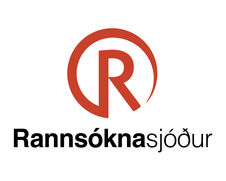Áhrif íslenska efnahagshrunsins á heilsu barnshafandi kvenna og fæðingarútkomur - verkefni lokið
Fréttatilkynning verkefnisstjóra
In the autumn 2008, Icelanders experienced a sudden national economic collapse. From being one of the richest nations in the world, the country suffered a major economic breakdown, affecting all inhabitants of Iceland in some way. Recent studies on the health consequences of the Icelandic economic collapse suggest an increase in depressive symptoms and perceived psychological stress, as well as an immediate short-term increase in attendance to a cardiac emergency department, among women in particular.
Heiti verkefnis: Áhrif íslenska
efnahagshrunsins á heilsu barnshafandi kvenna og fæðingarútkomur
Verkefnisstjóri: Unnur Anna Valdimarsdóttir, Háskóla Íslands
Tegund styrks: Verkefnisstyrkur
Styrkár: 2012-2014
Fjárhæð styrks: 13,296 millj. kr. alls
Tilvísunarnúmer Rannís: 120452

It is widely acknowledged that emotions (stress), behavior and environment of pregnant women can affect fetal development and birth outcomes. As all these factors are potentially modulated by national economic recessions, we hypothesized that the 2008 economic collapse in Iceland represented a stressor that might have led to an increase in the incidence of adverse birth outcomes during the Icelandic economic recession through changes in women's health and health behaviors during pregnancy.
We used data from the Medical Birth Registry, Medicines Registry and Maternal records to obtain information on i) smoking and body weight, ii) pregnancy-induced hypertensive disorders and use of antihypertensive drug use as well as iii) low birth weight, preterm birth and small-for-gestational age among pregnant women in Iceland during the years around the economic collapse. The main findings do not indicate worse health behavior among pregnant women in Iceland following the economic collapse. Indeed, there was an annual 6% decrease in the prevalence of smoking during pregnancy between 2001 and 2010 while maternal body weight remained unchanged. On the contrary, we found evidence of worse maternal health during pregnancy during the first year of the economic recession, characterized by a nearly 50% rise in gestational hypertension and corresponding increase in the use of antihypertensive drugs, compared to the year before the economic collapse. The severity of the aggregate economic climate at that time with a gradual yet slow recovery during the following years is a likely explanation for the observed increase in gestational hypertension. With respect to birth outcomes, our pilot study indicated an increase in low birth weight during the first year after the economic collapse, compared to the years before. This increase was driven by reduced fetal growth rather than shorter gestational length and was confined to more vulnerable groups of the society (i.e. younger women, not cohabitating women and women outside the labor market). Our preliminary results (yet to be published) suggest a sustained effect of the economic recession on selected birth outcomes.
The findings from part of the study have been presented at the Department of Gynecology and Obstetrics at the Landspitali-University Hospital, in order to facilitate utilization of the knowledge gained in the project. Furthermore, the findings have gained media attention, resulting in two broadcasting interviews and several press releases. Furthermore, the findings of the project have been presented at eight conferences, whereof four have been international conferences.
List of the project output
Journal articles
- Eiríksdóttir VH, Ásgeirsdóttir TL, Bjarnadóttir RI, Kaestner R, Cnattingius S, Valdimarsdóttir UA. Low birth weight, small for gestational age and preterm births before and after the economic collapse in Iceland: a population based study. PLoS one, 2013 Vol. 8, Issue 12.
- Eiríksdóttir VH, Valdimarsdóttir UA, Ásgeirsdóttir TL, Gísladóttir A, Lund SH, Hauksdóttir A, Zoëga H. Smoking and obesity among pregnant women in Iceland 2001-2010. European Journal of Public Health. 2015 Mar 30. pii: ckv047.
- Eiríksdóttir VH, Valdimarsdóttir UA, Ásgeirsdóttir TL, Hauksdóttir A, Lund SH, Bjarnadóttir RI, Cnattingius S, Zoëga H. Hypertensive disorders of pregnancy following a national economic collapse: a register-based study. PLoS ONE 10(9): e0138534. doi: 10.1371/journal.pone.0138534.
- Eiríksdóttir VH, Zoëga H, Ásgeirsdóttir TL, Hauksdóttir A, Lund SH, Bjarnadóttir RI, Cnattingius S, Valdimarsdóttir UA. Increase in small-for-gestational age births during an economic recession: a nationwide cohort study in Iceland. In publication process.
V. Clarke HM, Valdimarsdóttir UA, Eiríksdóttir VH, Hauksdottir A. Alteration in social support and mental well-being following the economic collapse in Iceland in 2008: A prospective study. In publication process.
Manuscripts in preparation
VI. Psychotropic drug use among pregnant women during an economic recession: a population based cohort study
Védís Eiríksdóttir's thesis for the degree of Philosophiae Doctor in Public health Sciences (to be defended in June 2016):
VII. Maternal health and birth outcomes during an economic recession – The case of Iceland


